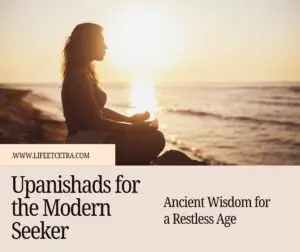LIFE IN AN AGE OF INTERNET OF THINGS (contd)
At the outset I must say that I did not intend this write-up to have a second part. But then, when the first part was uploaded in the magazine’s page there was an interesting development – at least for me, being the technology ignoramus, I am! The software assessed my writing and lo! In terms of ‘readability’, it seemed to be at a danger with the red emoji – apparently, sentence structures were in ‘passive’, sentences too long! This came as a surprise rather owing to the kind of work that I am engaged in since the last twenty years of my profession; adding my years of academic training through my university days will make it about twenty-five years or so. I have been a student of English literature and thankfully, a teacher now for around two decades now, teaching English to college and university students. When the software found me wanting in readability, I tried to analyze what might be the reason!
I came to understand in my ‘laymanesque’ perspective that the software’s way of understanding texts is through a system of codes programmed into it. What if a text does not conform to the embedded codes? How would the software generate its sense of utility or meaning from the text? Well, I apologize for my absolute limitations in this regard. But eventually, I came to realize that the software that read my article was not at ease with the way in which language was used to deliver some meaningful insight. It was perhaps not able to assess my ‘personal’ adaptation to the English language – the very personal customized way my approach to the topic and deliberations upon it through my way of using English created a discomfiture perhaps.
That took me to thinking about the way in which the brain works with language. Language is a mental faculty that has evolved through time. Everyone who is situated within a shared language and its embedded linguistic codes however, has a different way of using language when it comes to personalized expression manifest in communication both verbal and writing. As a person The software however, does not evolve unless there is an update that too, through a human intervention. Thus, a text that would not conform to the programmed algorithmic codes may then create uneasiness for the software. This takes one to another area of query, or rather contemplation – that it’s the human mind that uses language with respective personal traits while communicating. For instance, a Samuel Johnson would be very different from Aldous Huxley. Or, Shashi Tharoor would be utterly unlike Sudha Murthy! I was left wondering what would be the observation of technology fed system if it is ‘reading’ such texts which may not conform to the predesigned algorithm. Will it then question the ‘readability’ of texts?
This is however, not to say that the IoT is a useless addition to our life. It is indeed as important as other issues which has come to stay in our lives. It has made communication faster, revolutionized medical system and many more. Yet, there is a human mind behind its working. There is a human brain that creates the program, anticipates how the consumer would be able to derive optimal benefit while using it and most importantly, inspects the necessary repair, maintenance and updating of the system. The IoT by itself without human intervention probably cannot do all of these quite unlike a human being who knows when to provide ‘first aid’ or to rush to the operation theatre. And while I am writing these words, I have been told by the software about conflicting updates that I have entered into the text/file. I wish not to resolve as dictated by the programe since I am quite certain that I have been fairly able to create a sense of meaning through the writing with correct grammar. All said and done, IoT is here to stay and evolve in due time taking almost all affairs of life and our times to newer heights; what remains to be seen is its relevance and utility in relation to ethical, humane and adaptability issues when contextualized within lived realities of this world where each one of us live with a respective sense of subjective experiences that mostly require empathetic and compassionate response when it comes to conflict management, facilitation of resource distribution for the greater benefit of people.
Author: Merry Baruah, Assoc. Prof, Cotton University, Guwahati, Assam
Author of Reflections from the Heart – Anthology of 100 Poems




